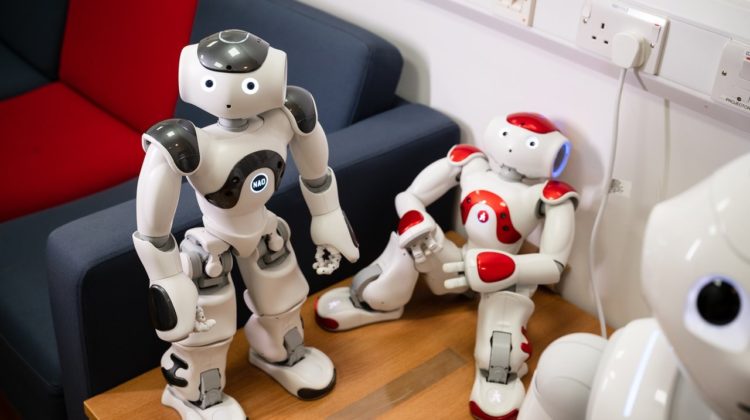
The University of Manchester is launching a new specialist multi-disciplinary centre to explore developments in smart robotics through the lens of artificial intelligence and autonomous machinery.
The Manchester Centre for Robotics and AI will be based in the engineering and materials facilities at the University of Manchester, which will provide a state-of-the-art home for industry-leading research in AI-powered devices and be an ‘interface between robotics, autonomy and AI’.
According to the university, the Centre for Robotics and AI will aim to: design control systems with a focus on bio-inspired solutions to mechatronics, such as the use of biomimetic sensors, actuators and robot platforms; develop new software engineering and AI methodologies for verification in autonomous systems, with the aim of designing trustworthy autonomous systems; research human–robot interaction, with a pioneering focus on the use of brain-inspired approaches to robot control, learning and interaction; and research the ethical and human-centred-robotics issues, in order to understand of the impact that the use of robots and autonomous systems has on individuals and society.
The University of Manchester has built a modern reputation of excellence in AI and robotics, partly based on the legacy of seminal thought leadership begun in this field in Manchester by legendary codebreaker Alan Turing. The creation of the new Manchester centre also follows robotics and AI being identified by UK Chancellor Jeremy Hunt as the most critical drivers for 21st-century economies.
To mark the opening of the new robotics centre, the Manchester group hosted its first conference in late November. Topics under discussion included the use of robotics in extreme environments. For the past decade, a specialist Manchester team led by Professor Barry Lennox has designed robots to work safely in nuclear decommissioning sites in the UK. A ground-breaking robot called Lyra that has been developed by Lennox’s team – and recently deployed at the Dounreay site in Scotland, the ‘world’s deepest nuclear clean-up site’ – was listed in TIME magazine’s Top 200 innovations of 2022.
Other world-leading Manchester applications include foldable drones designed to characterise subterranean mines or for the inspection of offshore wind turbines. And Manchester leads on designing the verification technologies to ensure that we can trust these robots when they are working autonomously in hazardous conditions.
One of the conference’s highlights was a joint talk by robotics expert Andy Weightman and theologian Dr Scott Midson, which put a spotlight on ‘post-humanism’ – a future world in which humans won’t be the only highly intelligent decision-makers. Weightman, who researches home-based rehabilitation robotics for people with neurological impairment, and Midson, who researches theological and philosophical critiques of post-humanism, discussed how interdisciplinary research can help with the special challenges of rehabilitation robotics – and, ultimately, what it means to be human ‘in the face of the promises and challenges of human enhancement through robotic and autonomous machines’.
Delegates also had the chance to observe demonstrations of a series of robots and autonomous machines.
Angelo Cangelosi, professor of machine learning and robotics at Manchester and co-director of the new centre, said the university offers a world-leading position in the field of autonomous systems – a technology that will be an integral part of our future world. ‘Our research and innovation team are at the interface between robotics, autonomy and AI – and their knowledge is drawn from across the university’s disciplines, including biological and medical sciences – as well the humanities and even theology,’ he said. ‘This rich diversity offers Manchester a distinctive approach to designing robots and autonomous systems for real-world applications, especially when combined with our novel use of AI-based knowledge.’


